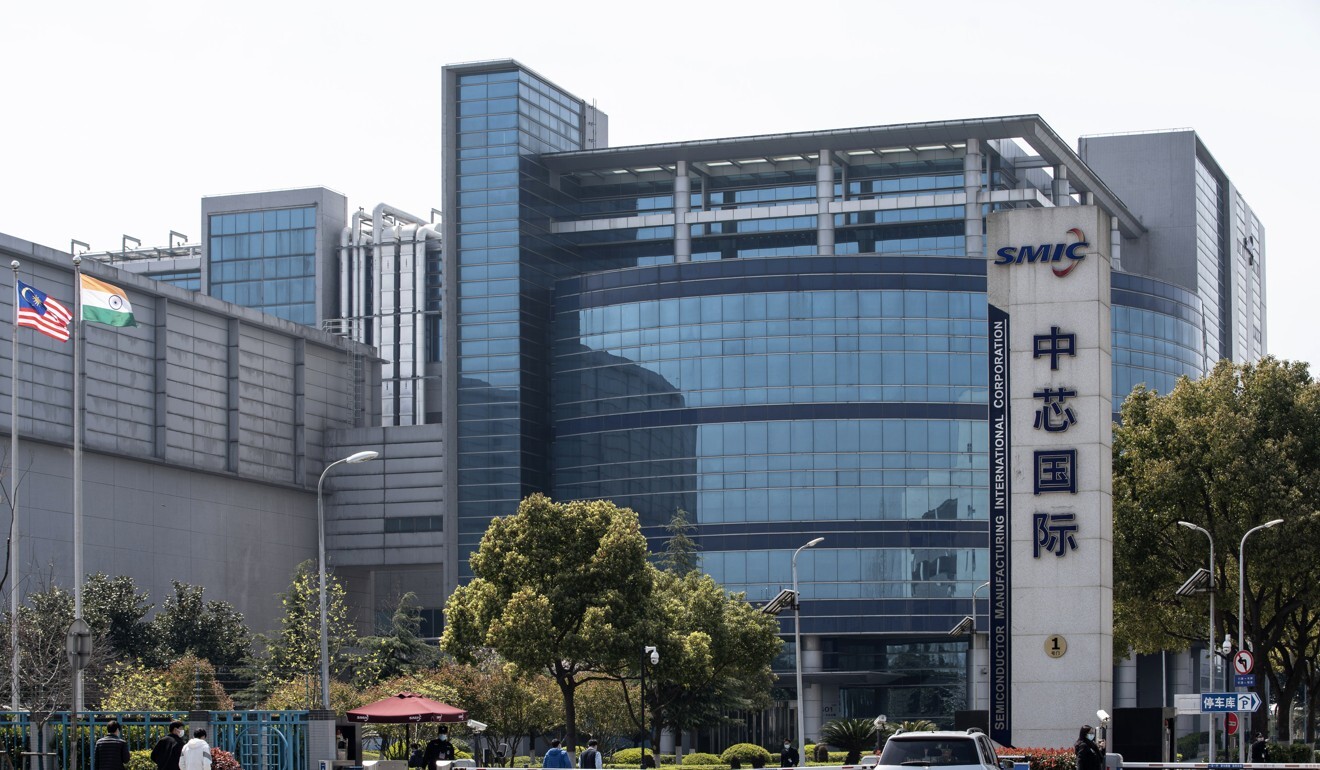
US-China tech war: Beijing’s semiconductor push could be hindered by delays in US permit approvals for equipment imports
- Approvals process has become congested amid too many applications, resulting in likely equipment shipment delays to new chip plants in China
- Chinese companies are factoring longer lead times into their plans, but the issue is hampering a domestic ramp-up in capacity

China’s push to boost domestic chip production capacity by building new foundries could be hindered by delays in obtaining US permits to import the necessary equipment, an issue which has not improved since Joe Biden assumed power in the White House, according to analysts and industry insiders.
While the US allows exports of mature 28-nanometre and 14-nm chip production line equipment to China, exports of such machinery are still subject to permits being approved by the US government.
But the process has become “congested” amid too many applications, and could result in equipment shipment delays to new chip plants in China, analysts said.
Eric Tseng, chief executive of Taipei-based research firm Isaiah Research, said Taiwanese chip companies such as Taiwan Semiconductor Manufacturing Co (TSMC) and United Microelectronics Corporation, as well as Shanghai-based Semiconductor Manufacturing International Corporation (SMIC) are suffering from “a protracted vetting process” to import 22-nm and 28-nm node machinery into mainland China to expand their chip production capacity.
“It could delay their capacity expansion plans,” said Tseng. “Even though the US has not explicitly banned equipment exports to Taiwanese fabs in mainland China,” he added.
TSMC and SMIC declined to comment. UMC did not respond to an emailed request for comment.
The US Department of Commerce tightened its export controls last October by designating six emerging technologies, including computational lithography software used in extreme ultraviolet (EUV) applications and cutting edge 5-nm wafer production, as “essential to US national security”.
It also extended controls over dual-use technologies under the Wassenaar Arrangement, a multilateral export control regime involving 42 countries, including the US, UK, Canada and Russia.
China has nevertheless pushed ahead with the production of mature process chips, while it seeks to build up its domestic capabilities in more advanced chip technology.
Taiwanese semiconductor firms have joined this domestic chip boom, amid generous subsidies from Beijing and integrated circuit output in China hitting an all-time high in May, according to government data.
Although there has been no change in US export control rules around semiconductor machinery since Biden took office, and no official reports about export applications of 28-nm machinery to China being rejected, US permit delays are nevertheless impeding the ramp-up in capacity.
Gu Wenjun, chief analyst at Shanghai-based semiconductor research firm ICwise, said the timeliness of obtaining US permits to import equipment has been an uncertainty that Chinese chip companies have been dealing with for some time, with many filing applications early in anticipation of delays.

Longer lead times, and the limited supply capacity of machinery makers, remain issues to watch, said Gu.
“Foundries [in China] that have taken the longer equipment lead time into consideration, haven’t seen much impact for now,” said Joanne Chiao, an analyst at TrendForce, referring to the time between placing an order and receiving the delivery.
However Zhao Haijun, co-CEO of SMIC, warned in a conference call last month that the company’s Shenzhen wafer fabrication plant, a joint venture between SMIC and the Shenzhen government, may experience some delays in equipment deliveries due to US restrictions.
The 28-nm process technology is considered mature but it is important to alleviate some of China’s “chokehold” points, and these chips can be used in various applications from wireless communications to Internet of Things devices.
They can also be used in smart cars, a sector suffering a chips shortage, and an area “the US pays close attention to,” said Tseng.
Global foundries are currently trying to ramp up their capacity amid a chip crunch, and the mature 28-nm process is in hot demand.

03:46
Taiwan’s worst drought in decades adds pressure to global chip shortage
TSMC, the world’s largest contract chip maker, decided in April to spend US$2.87 billion to expand production at its Nanjing fab, which produces chips on the 28-nm node.
SMIC, which was added to the US Commerce Department Entity List last December over its alleged ties to the Chinese military, said in March it will build a 28-nm foundry in Shenzhen.